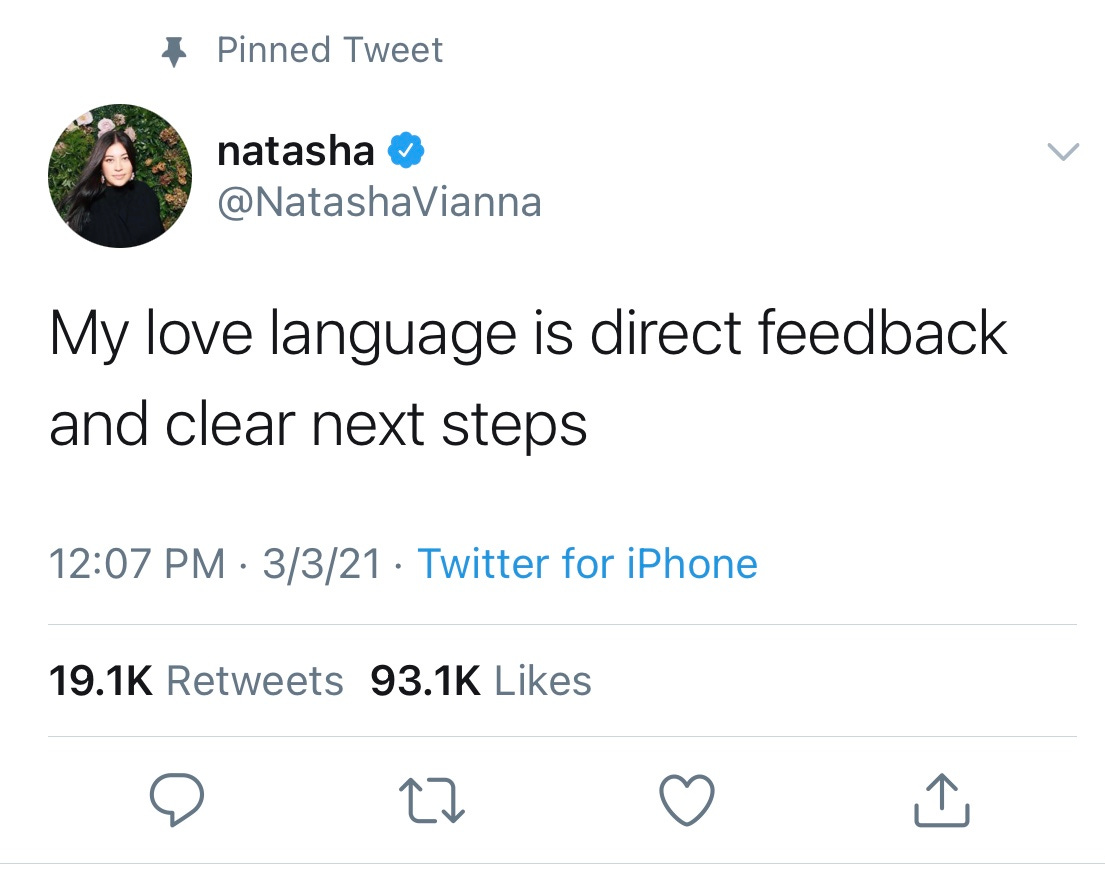Managers: Friendly or Fearsome?
(A little from column A and a little from column B)
Hi all!
This week we continue the chat about managers, and practically what it means to strike the balance between being friendly, and being respected and driving outcomes.

Since we’re in between long weekends (Victoria Day in Canada for some of you, Memorial Day coming up in the US for others), it’s a shorter newsletter this week, and I’m deviating from the usual format of the newsletter (musings, conversations and resources) this week. Instead, just rounding up a few crowdsourced tips from the great people in my network, including readers like you.
Hopefully the weather is good where you are, you have some ability to hang out with your people, and the prospect of summer (and some return to normalcy…) feels within reach!
As mentioned in last week’s newsletter on managing, it’s hard not to want to be everyone's friend when you manage them. It makes sense, people want to do well for the people they like, but make no mistake about it - while managers can use certain principles of friendship to build relationships with their reports, they should not aim to be their reports’ work besties (which I wrote about a few months ago here).
It’s definitely a fine balance, as exemplified in this quote below by Jim Rohn (who started his career in HR at Sears in the 1950s, and became an incredible motivational speaker and author, and advised people like Tony Robbins):
The challenge of leadership is to be strong, but not rude; be kind, but not weak; be bold, but not bully; be thoughtful, but not lazy; be humble, but not timid; be proud, but not arrogant; have humor but without folly.
When Managing as a Friend Makes Sense
When does it make sense to apply tenets of friendship to managing?
A few thoughts below.
Take the time to really get to know your reports, like you would a friend
Actively listen to what your reports are interested in, what motivates them, and get to know how they learn and receive feedback
Know their individualized strengths and weaknesses. This HBR article describes it well. Managing a team is analogous to playing a game of chess (not checkers, where the pieces are homogenous), and you can create a team that offsets each others (and your own) weaknesses
Be positive and encouraging - (But avoid false positivity)
Be excited and encouraging of what is possible for your report, for the team and for the company to achieve - managers have a large impact on the morale of the people they manage
On the flip side, being overtly positive when things aren’t actually rosy can actually work against you as a manager, because you’re eroding transparency and trust
I’ve worked in high stress situations at banks and startups, where lines of business were being sold, or where the cash runway for the business was mere weeks. Good managers in those situations communicated that there was risk in the business so that their teams weren’t completely blindsided if layoffs ultimately happened. It’s not always possible to be fully transparent with every level of person on your team, but indicating at a high-level the health of the business and how your group or team fits into that is greatly appreciated
Let them know you have their back
The best learning and innovation can come from messing up. Good managers give their reports cover, and like a good friend, make it ok to make missteps
Sharing your own vulnerabilities and past errors on your own learning path is a great way to humanize the relationship with your reports, create a bond
Basic, consistent respect
The basics go a long way here. As a junior investment banking analyst, I used to keep a folder in my email called “Warm Fuzzies”, where I’d store emails from senior people on my team thanking me for hard work or good work which I would re-read when I was pulling all-nighters
Thank your team consistently. Both directly/confidentially and externally when it makes sense to elevate or highlight your reports’ performance
Respect your reports’ time. Sometimes your team will need to work long hours. The best way to respect their time is not necessarily to reduce work or the number of hours needed, but by being realistic with timing and expectations. Set real deadlines (vs. moving targets), and minimize guesswork
Communicate as early on as you can so your reports aren’t jammed up at the last minute
When Managing as a Friend Does Not Makes Sense
There’s one major attribute of friendship that I believe should be avoided in all management relationships:
Joint Commiseration and Gossip
While it’s true that work friendships can be developed or strengthened by talking through your complaints with one another, this is likely to be completely toxic for managerial relationships.
Gossiping or speaking negatively of other teams/people is in poor taste, and can sway your reports’ opinions of other people.
Don’t vent to your reports. You can save your venting about work stress for your real-life friends over drinks, but as Bob Iger, (former CEO of Disney) says:
“[Pessimism is] ruinous to morale. It saps energy and inspiration.
…And in bad times (the times that you’re venting about), is usually when people need energy and inspiration the most.
Instead, you can build closeness with your reports in different ways:
Be vulnerable about your own learning experiences and where you’ve messed up in the past
Let people in on your decision making - your reports will appreciate understanding your tradeoffs and how you arrive at conclusions
Two More Thoughts…
Be clear in your expectations
As a manager, you have the ability to increase or reduce the anxiety of your reports. Anxiety is largely caused by uncertainty and guesswork, so to the extent you can reduce that for your reports, the better experience they’ll have
With both positive and negative feedback, be specific so your report knows what to do more of, do less of or keep doing
Own outcomes, not processes
Sometimes, a stressful project at work is akin to spending hours/days on a trip somewhere foreign with your family or significant other: you’re struggling with the language, the weather is terrible and you end up lost, or massively delayed1. It’s easy when mistakes are made, or things are going wrong to point fingers at an individual person or decision, but the truth is, the whole team ended up in a tough place together2
When you’re truly on a team, regardless of where the wrong turn occurred, everyone owns the ultimate outcome, especially as a manager. You start by owning the mistakes of your reports (this is an extension of having your reports’ back, and the accountability part of managing I talked about in last week’s newsletter). Then you work together to get out of the ditch
Resources/Links
There’s plenty of Jim Rohn content on leadership is available for free on YouTube, including this gem: “Level Up Your Mindset” (YouTube)
“What Great Managers Do” (Harvard Business Review)
Cool ladies doing cool things: Meet Jennifer Daniel, who is the new head of the Emoji Subcommittee for the Unicode Consortium, and is dedicated to designing inclusive, thoughtful emojis (MIT Technology Review)
If this was interesting or helpful to you, I’d love it if you’d shared!
Not that this has happened very recently to me + my SO + our toddler-level Spanish. Nope.
I credit my significant other and his manager (whom he holds is super high regard) for this philosophy of owning outcomes







